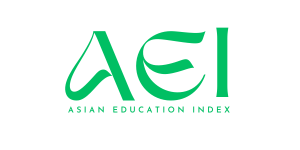Theoretical And Practical Aspects Of Developing Students' Heuristic Thinking In Digital Education
DOI:
https://doi.org/10.62480/jpip.2025.vol42.pp32-33Keywords:
digital learning, heuristic thinking, creative thinkingAbstract
This article analyzes in detail the issues of developing students' heuristic thinking in the context of digital learning. It shows the theoretical foundations of heuristic thinking, the possibilities of integration with digital tools, as well as the practical significance of such methods as the problem method, bainstorming, and the game approach. The article also highlights the role of digital learning platforms, virtual laboratories, and interactive applications in shaping students' creative search and thinking, as well as the specifics of assessment and reflection processes. The authors offer specific proposals to overcome obstacles such as problems related to digital infrastructure, the need to improve teachers' digital literacy, and student passivity. The final article contains scientific and practical recommendations for educating a generation of creative and independent thinkers by strengthening heuristic thinking in the modern education system
References
Karimov, A. (2021). Raqamli ta’lim sharoitida interaktiv metodlardan foydalanish
tajribasi. Ilmiy-texnik axborot, 4, 18-24.
Abdullayeva, G. (2020). Evristik fikrlashni shakllantirishda innovatsion
texnologiyalarning o‘rni. O‘zbekistonda ta’lim va innovatsiyalar jurnali, 2, 35-42.
UNESCO. (2022). Digital Learning and Creativity: Approaches for 21st Century Skills.
Paris: UNESCO Publishing
Downloads
Published
Issue
Section
License

This work is licensed under a Creative Commons Attribution-NonCommercial 4.0 International License.
User Rights
Under the Creative Commons Attribution-NonCommercial 4.0 International (CC-BY-NC), the author (s) and users are free to share (copy, distribute and transmit the contribution).
Rights of Authors
Authors retain the following rights:
1. Copyright and other proprietary rights relating to the article, such as patent rights,
2. the right to use the substance of the article in future works, including lectures and books,
3. the right to reproduce the article for own purposes, provided the copies are not offered for sale,
4. the right to self-archive the article.













